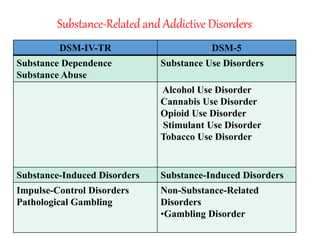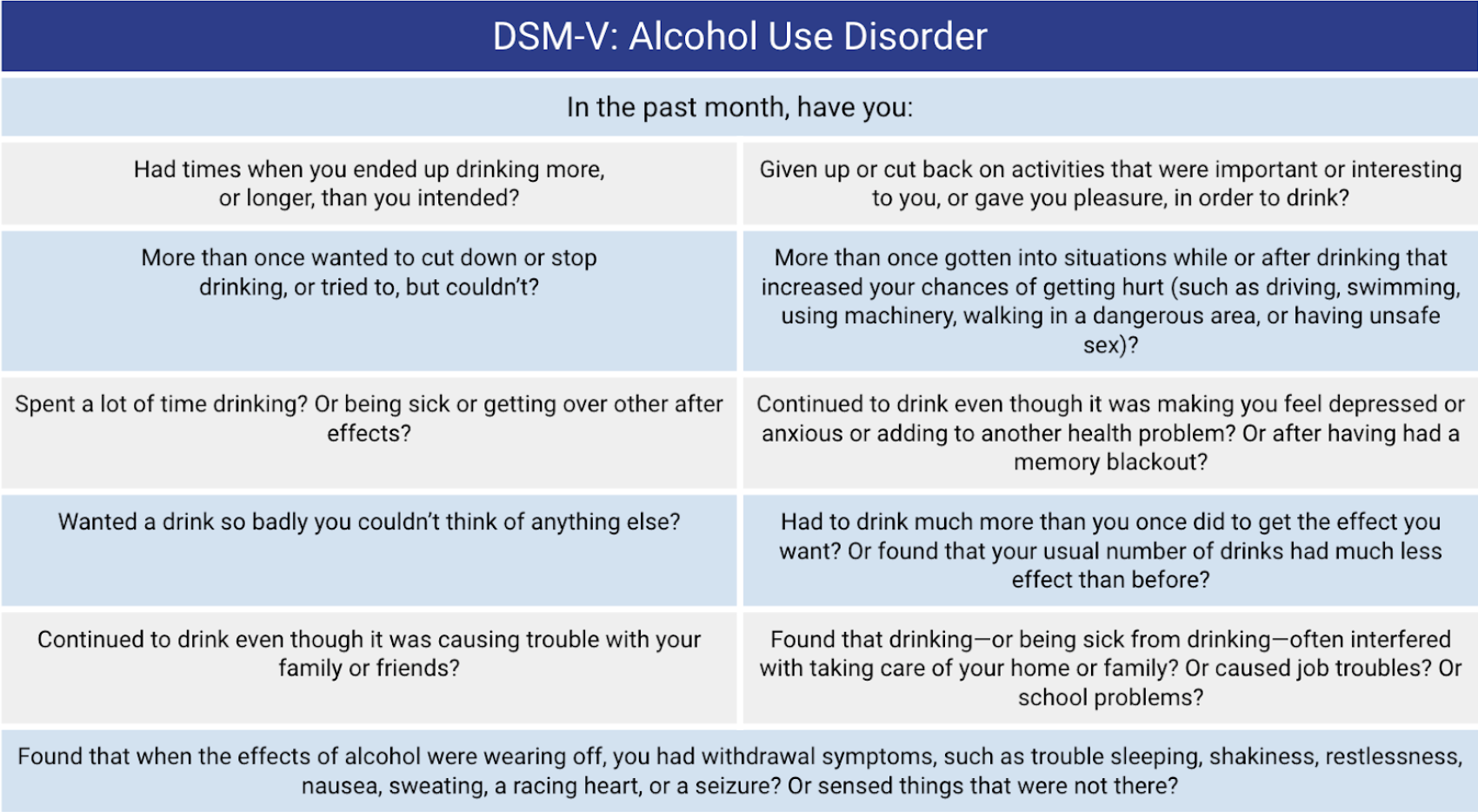
substance use disorder – a condition in which the use of substances leads to clinically and functionally significant impairment or distress. sensitization – an amplified response to a stimulus resulting from repeated exposure to it. rewarding stimuli – stimuli that the brain interprets as intrinsically positive and desirable or as something to approach. reinforcing stimuli – stimuli that increase the probability of repeating behaviors paired with them. psychological dependence – dependence that involves emotional–motivational withdrawal symptoms (e.g., dysphoria and anhedonia). physical dependence – dependence that involves persistent physical– somatic withdrawal symptoms (e.g., fatigue and delirium tremens). drug withdrawal – symptoms that occur upon cessation of repeated drug use. drug sensitization or reverse tolerance – the escalating effect of a drug resulting from repeated administration at a given dose. 
dependence – an adaptive state associated with a withdrawal syndrome upon cessation of repeated exposure to a stimulus (e.g., drug intake).

addictive drug – psychoactive substances that with repeated use are associated with significantly higher rates of substance use disorders, due in large part to the drug's effect on brain reward systems.

addiction – a biopsychosocial disorder characterized by persistent use of drugs (including alcohol) despite substantial harm and adverse consequences.Definition Addiction and dependence glossary







 0 kommentar(er)
0 kommentar(er)
